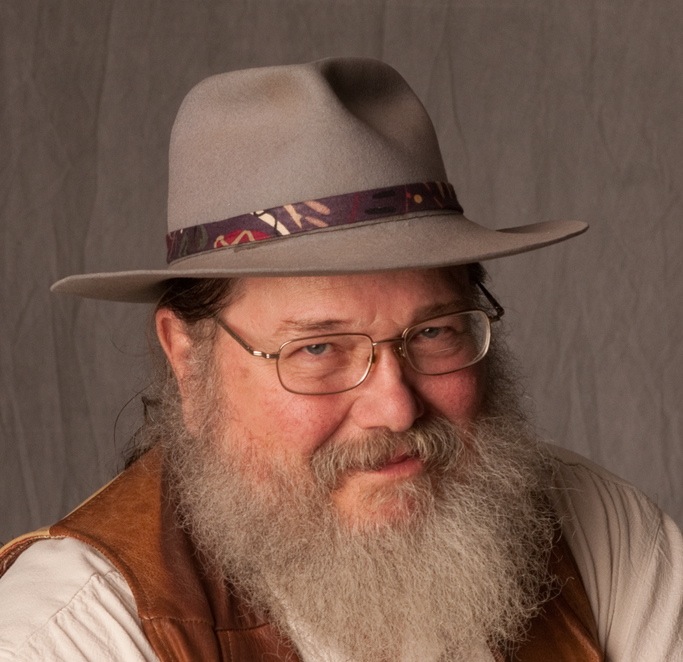“Why do you bob your hair, girls?/It’s not the thing to do/Just wear it, always wear it/And to the Lord be true/And when before the judgment/You meet the Lord up there/He’ll say, ‘Well done, for one thing/You never bobbed your hair.’”
–Blind Alfred Reed, 1927
The pickup truck carves the ranch road like a broken beer bottle through scattered mesquite and mullein. White limestone dust boils up from its rear as it bounces along. A small boy bare to the waist and wearing faded Levis straddles loops of welding cables and bellies up to the cab. His hips sway like a girl’s as the truck negotiates the rise and fall of the prairie. The boy sings. “Born on a mountaintop in Tennessee, the greenest state in the land of the free. Raised in the woods so he knew every tree. Killed him a bear when he was only three. Daaaavy, Davy Crockett, King of the Wild Frontier!”
It rarely got better than this for me. The sense of empowerment that came with knowing a good song and singing it was intoxicating. Songs would prove to be an evocative—if whimsical—travel machine all my life, taking me on journeys across unseen borders.
I got a call a few nights ago. The voice immediately placed me at the Heathcote School of Living in northern Maryland in the late ’60s. Don’t let the name fool you. In addition to being an educational center, it was also a hippie commune. The caller was Larry B. who had lived at the school at the same time as my wife and I. We had seen him only once in nearly 50 years. Larry cut to the chase. He said, “I’m moving to a new town and my prospective landlord is an old maid piano teacher who claims to know every song ever written. I told her I would sing her a song she had never heard. I can’t remember the last verse of “Why Do You Bob Your Hair Girls?”
Music was integral to our community experience at Heathcote. Every day small groups gathered and played songs as equals and group music making was part of our celebratory life. We eagerly shared new songs like you would share a new recipe. I recall the excitement of sitting in Tim A.’s room upstairs in the old mill building to listen to recordings of Ramblin’ Jack Elliott and Robert Johnson for the first time. Tim looked like a well-fed black bear. He had a glossy raven beard covering a cherubic face and half his chest. Dressed all in black Tim would stand with his guitar in the opening of a downtown Baltimore alley and confront an innocent passerby in deadpan delivery. “For five dollars I’ll sing you three songs you’ve never heard before.” If they were interested he would back into the shelter of the alley and regale them with the most obscure tunes he had collected. Songs like “Amelia Earhart’s Last Flight” and “Otto Wood the Bandit.”
The truck passes white-faced Herefords bedded down beside the road. The boy tilts back his head like a fox and prospects the evening air. He smells cut hay, prickly pear and dust. The boy lifts a bare foot and scratches a chigger bite. He sings. “And the wayward wind is a restless wind, a restless wind that yearns to wander and he was booorn …the next of kin to the wayward wind.”
For most of my life the acquisition of a song involved my hearing it and then trying to remember it long enough to write it down in a notebook. Sometimes it took years to find the lyrics to a song and in spite of the amazing access the Internet has opened up there are a couple of songs I’m still looking for.
I began singing for Larry. “That’s right, that’s right,” he encouraged me. “It was just the last verse I had forgotten. What about ‘The Great Baltimore Fire,’ do you remember that one?” Yes, I did.
The truck enters a tunnel wrapped in branches. The pickup rattles onto a metal bridge and the boy feels the cool moist air and hears frogs and crickets. He spreads his fingers inches above his father’s head. He imagines his father’s familiar smell of pipe tobacco, sweat and gasoline. He sings. “On the wings of a snow white dove, he sends his pure sweet love, a sign from above on the wings of a dove.”

